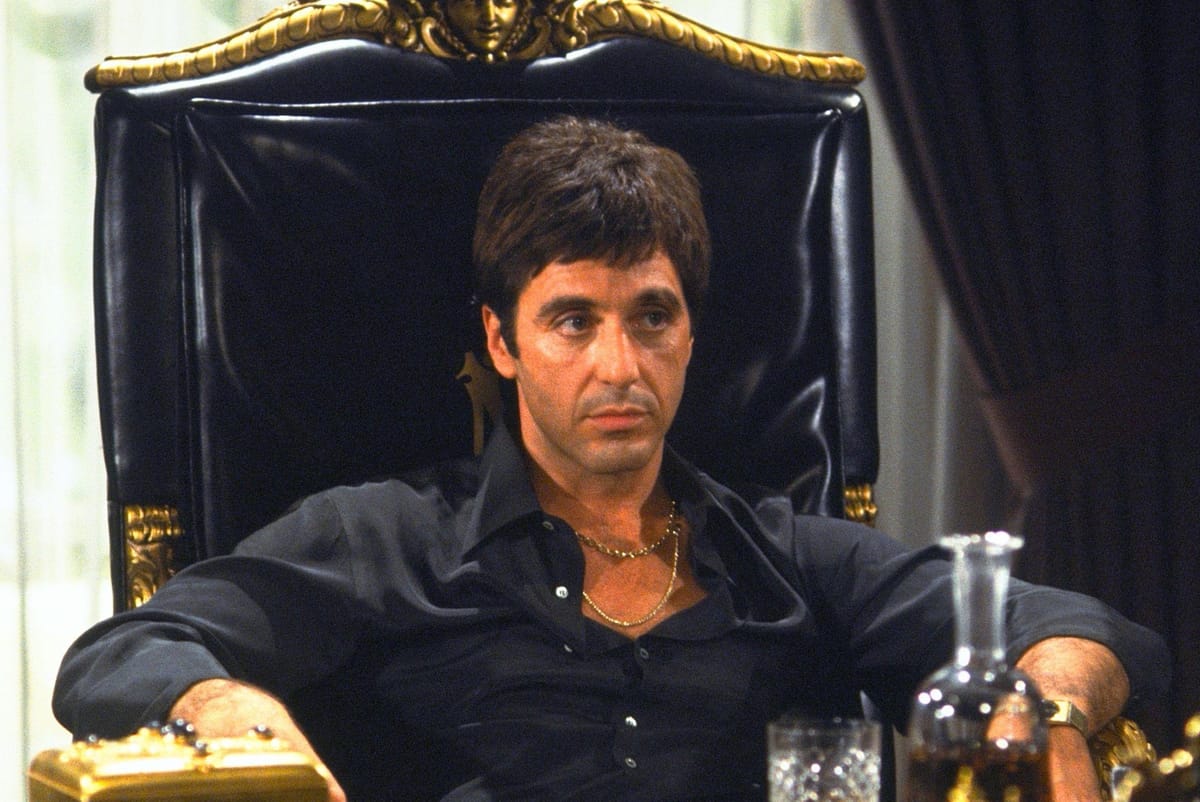Your protagonist doesn't need to be likable.
There is a common misconception that a protagonist needs to be likable. The truth is, we just need to care.

The Story and Plot Weekly Email is published every Tuesday morning. Don't miss another one.
There is a common misconception that a protagonist needs to be likable. This is only sometimes true.
All we really need is to care what happens next.
Of course, liking the character is an excellent way to do that, but it isn't the only way.
Sometimes, characters are compelling because they're a mystery, because their values are so different, or we get to experience another life for the length of the story.
So if someone says, "The main character isn't likable," go ahead and interpret it as, "I didn't care about what would happen to this person, and on top of that, they weren't likable."
The first part is the goal, and the second part is an optional, albeit common, tactic to achieve it.
Sometimes, the connection is already built into the protagonist.
It's possible that the audience can go along for the ride right out of the gate. The character may be worth watching from conception; all we need to do is spend time with them to learn it.
Roger Ebert called the movies "A machine that generates empathy." For many, following a character and seeing the world through their eyes will naturally create that rooting interest. So, you don't always have to implement a conscious strategy.
But what if that's not enough?
What if the character is more challenging than that? Or worse, we haven't really made strong decisions about them yet?
Here are some options to create more of a connection between the protagonist and the audience.
We like single-minded purpose.
In her talk combining "learned optimism" and storytelling, the great Lyndsey Doran speaks about engagement. She is referring to a protagonist who possesses a single-minded drive and purpose to accomplish one thing.
That is, they care and dedicate all their energy to it.
We all yearn for a meaningful purpose, and we admire characters who have found it, even for a short time or under tragic circumstances.
And sure, the more positive the thing they care about, the better, but it doesn't have to be a great thing. It can be small and personal.
And judging by RICHARD III and SCARFACE, it can be horrible, too.
We sympathize with those who have been wronged.
The audience will immediately connect with characters who have been unjustly treated.
Those who are bullied, fired, taunted, embarrassed, betrayed, dumped, wrongfully accused, or who have experienced other terrible things populate Act 1's everywhere.
That's not an accident. Writers do it because it works.
I often mention MANCHESTER BY THE SEA, which follows a distinctly unengaging character. Instead of taking our attention for granted, writer-director Kenneth Lonergan buys time with us by showing a day in the life.
At work, Lee unclogs other people's toilets, is mistreated by a tenant, and is exploited by his boss. He then picks an unnecessary fight at a bar to create a mystery about what the hell is up with this guy. This interest keeps us going through the story to the midpoint when we realize the tragedy of this man, and we are then fully invested.
The dude is a jerk, but we find him engaging long enough to learn the why.
We like those that pet the dog.
This tactic embraces more straight-up "likable" traits and can soften the blow for harsher characters if it is done with emotional truth. So please don't force it.
The term "pet the dog" has been around for at least 50 years and means we show the protagonist's kinder side.
They pet the dog (In the first act of THE KARATE KID, Daniel gets a bowl of water for a dog, and we never see the dog again!), show kindness to others, value them, and we can even show how much others care about them.
In general, this tactic is about showing that the protagonist understands that other people matter, and the more they sacrifice to uphold this value, the better.
The opposite also works.
The opening of Netflix's first original series, HOUSE OF CARDS, opened with the main character assessing an injured dog's health and "euthanizing" it with his bare hands without flinching.
We instantly knew who this guy was.
Double-up on both.
If you want to win points with the audience, have a character be unjustly wronged for doing the right thing.
Jerry Maguire comes instantly to mind. He grew a conscience, tried to do the right thing with his memo, and was fired.
Jerry has a long way to go to become the person he needs to be, but was there anyone in the theater not rooting for this guy?
We like to live vicariously through characters.
These characters have traits or positions we would love to have ourselves.
Success and power are common. We also admire people who are good at their jobs, so movie characters always seem the best at what they do.
We like charming, quick-witted characters who can hold their own in a flirty conversation. Characters that stay calm under pressure or exhibit bravery when confronted with risk, those that stand up to authority or refuse to yield social pressures.
Is there any question as to why James Bond is an enduring character?
Like everything, it all depends on how we treat it. Yes, we like powerful people who take that responsibility seriously, but we also hate the opposite.
Look how Aaron Sorkin admires the President in THE AMERICAN PRESIDENT and believes we should, too, yet the President in DON'T LOOK UP is one we're meant to despise.
Same thing with money. We may admire characters with luxurious lifestyles they earned themselves while holding the siblings in SUCCESSION in total disdain.
A character is the sum of the choices they make.
I've written about simplifying how we define a character through:
- What the character wants.
- What they're willing to do to get it.
We illustrate this through their choices. This means the why behind their actions matters.
For example, a man who rents a dog to impress a girl is very different than a man who loves his dog and meets the same girl at the dog park.
The audience can be quite forgiving when they learn the why behind an action.
It is always a structural choice when we reveal it, or if we even reveal it at all.
Know why we should care what happens.
Are we rooting for your protagonists because they're underdogs? Are they the forgotten? Because their problem is worth solving? Because we see ourselves in them or maybe we want to?
Did they make a mistake, and the repercussions are far out of proportion?
This question has countless answers, but what's important is that you know what that answer is.
The protagonist doesn't have to be likable, but you must know why we should care.
The Story and Plot Weekly Email is published every Tuesday morning. Don't miss another one.
When you're ready, these are ways I can help you:
WORK WITH ME 1:1
1-on-1 Coaching | Screenplay Consultation
TAKE A COURSE
Mastering Structure | Idea To Outline




